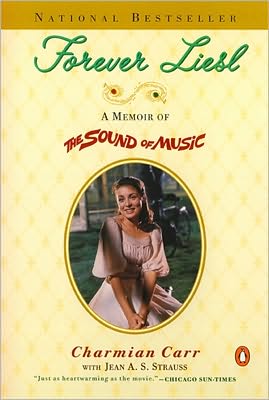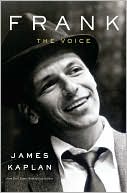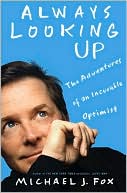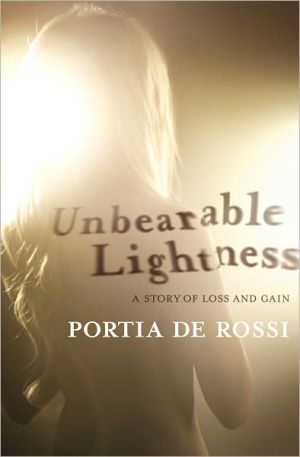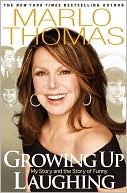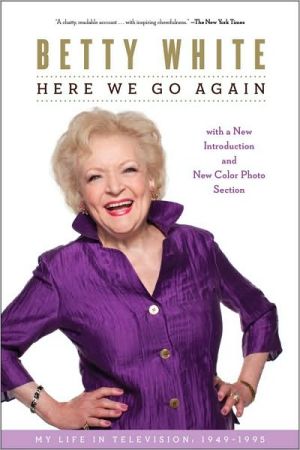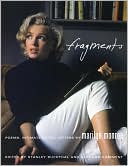Forever Liesl: A Memoir of the Sound of Music
The magic of The Sound of Music lives on in the minds and hearts of everyone it has touched. Now, Charmian Carr, who in 1965 captivated moviegoers as Liesl "Sixteen Going on Seventeen" von Trapp, tells what it was like to be a part of the film that has become a cultural phenomenon. It's all here: from how she got the role (and why she almost didn't) to romances on the set and wild nights in Salzburg; from the near-disaster during the gazebo dance to her relationships—then and now—with her six...
Search in google:
"Let's start at the very beginning. A very good place to start...." At the age of 21, Charmian Carr, then Charmian Farnon, was cast as Liesl "16 going on 17" von Trapp in the now-classic "The Sound of Music." In an instant Charmian went from receptionist to screen ingenue and captivated audiences with her effervescent performance. Charmian is now "57 going on 58" and as beautiful and charming as ever. "The Sound of Music" is undoubtedly the most popular movie musical of all time. The winner of five Academy Awards, including Best Picture, and named one of the three most popular films of all time by the People's Choice Awards, the film has become a cultural icon. Just in time for the 35th anniversary of the film's release, Forever Liesl is the book every fan has been waiting for. It is the first book about the movie written by a cast member -- someone who experienced the magic of making this movie firsthand. Forever Liesl brims with heartwarming anecdotes and funny moments, from romances on the set to wild nights at the Bristol Hotel in Salzburg. Charmian recounts how she won her role with no acting experience, the near-disaster as they filmed the dance sequence in the gazebo, and her relationship -- then and now -- with her six celluloid siblings. She also answers the question she is asked most often: What was Julie Andrews really like to work with? When "The Sound of Music" wrapped in 1964, Charmian Carr thought she would be saying goodbye to Liesl forever, but in reality, it was just the beginning. Since the March 1965 premiere, Charmian has served as the film's ambassador, travelling around the world, meeting millions of fans. Perhaps her most meaningful Liesl moment occurred more than 30 years after the film's release -- when she met the real von Trapp children for the first time. This wonderful book captures why "The Sound of Music" has become the phenomenal success that it is -- why it endures, and why millions of fans love it so passionately. Stories from fans and friends whose lives were permanently changed by this remarkable movie, and 30 of Charmian's favorite photographs make Forever Liesl more than an affectionate memoir. It is a keepsake for anyone who considers "The Sound of Music" one of their favorite things. Publishers Weekly Published to coincide with the 35th anniversary of The Sound of Music, this memoir by the actress who portrayed Liesl von Trapp offers a detailed account of the creation of the classic, which won five Academy Awards. Carr was 21 at the time she was chosen to play the 16-year-old daughter of Baron von Trapp (Christopher Plummer), a wealthy widow who falls in love with a nun-cum-governess (Julie Andrews). Diehard fans of the tuneful romance may savor these somewhat dated anecdotes, such as the one about the day five-year-old Kym (who played Gretl von Trapp) nearly drowned during a shoot on an Austrian lake or how the famous opening shot of Andrews twirling in a meadow was captured by a camera man strapped to a helicopter. However, those who share Plummer's reputed opinion that the film lacks depth (he referred to the song "Edelweiss" as "boring, schmaltzy and trite") will find wading through this archival minutia tough slogging. One of the more interesting facts imparted in this otherwise syrupy account is the anger Carr and other cast members felt toward the studio, which took advantage of them by convincing them to do free promotion and to sign releases that prevented them from receiving any money generated by sales of the highly profitable sound track. B&w photos. Agent, Lynn Franklin; 10-city author tour. (Feb.) Copyright 1999 Cahners Business Information.
\ \ \ \ \ Chapter One\ \ \ Maria\ \ \ We stood in the hotel lobby, Nicholas and Heather and Duane and Angela and Debbie and Kym and I, awkward and uncertain. The von Trapps were easy to spot. There were six in all, the sole surviving children of Georg and Agathe and Maria von Trapp. Dressed in traditional Austrian clothes, the women in dirndls with their gray hair in braids, they stood out among the other guests.\ "This is very intimidating," Nicholas whispered into my ear. I nodded as the von Trapps glanced at us shyly, and then turned away. The seven of us who had portrayed them in the 1965 film The Sound of Music wanted to approach them, but this was such a momentous occasion, none of us knew how to proceed.\ It was December of 1998. We were all in New York to be honored by the State of Salzburg. The von Trapps were to be awarded the Golden Decoration of Honor for the many ways in which their family had helped Austria, and we seven were to receive the Mozart Medal for our part in spreading the von Trapps' story worldwide.\ In all the years since we made the film, I had never met our real-life counterparts, only their stepmother, Maria Augusta Kutschera, whom Julie Andrews portrayed in the film. In 1964, while we were filming on location, Maria traveled to Salzburg, met the cast, and was given a walk-on part. As Julie Andrews sings "I Have Confidence" on her way from Nonnberg Abbey to the Trapp Villa, and passes beneath an arch in downtown Salzburg, in the shadows behind her is the real Maria von Trapp. Gettingthose few seconds on film took thirty-seven takes, between the master shot and the reverse angles, and when it was all done Maria von Trapp told director Robert Wise, "Mr. Wise, I have just abandoned a lifelong ambition to work in the movies."\ I never saw the real Maria again before she died in 1987. Now that the moment had finally arrived that I would meet the "children" we'd portrayed, it was daunting. It felt as if we were impostors. For more than three decades, the seven of us had been applauded for being von Trapps, and suddenly we were faced with the real ones.\ We all retreated to our hotel rooms surprised at how awkward that first moment felt, and wondering why we found it so hard to speak to them. I realized how much I wanted these people to accept us. We had portrayed them, but we were aware that members of the von Trapp family were not entirely enamored of the film. Since its release in 1965, they had lived with the burden of being fictionalized. Important facts about them had been changed or obscured. People expected them to be like the film characters, and were disappointed to find the von Trapps were not mirror images of the children in the film—nor did they want to be.\ Unlike the story told in The Sound of Music, Maria, a young novice at Nonnberg Abbey in Salzburg, was sent to the von Trapp home to care not for all seven children, but for only one child. Georg von Trapp, a widowed World War I submarine captain, had contacted the abbey seeking a tutor for his twelve-year-old daughter, whose name was also Maria. The Captain's wife had died of scarlet fever, and then Maria, his third child, had been stricken by the virus. Though little Maria had survived, her heart had been weakened. She was fragile and unable to attend school.\ Maria Kutschera's arrival in the von Trapp home set in motion a series of events that decades later would be the basis for The Sound of Music. Some parts of the story were entirely accurate. Maria, the young novice, was the latest in a long line of governesses and teachers that the Captain had hired to look after his family. He was courting an Austrian princess. And he did marry his young daughter's tutor within a year's time. But many other facts were changed.\ At midday, the seven of us who'd been in the film were invited to join the vice-governor of Salzburg for lunch in the hotel's restaurant. As we were led to our table, we passed by the von Trapps sitting at their own. Once again, we all glanced at each other but no words were spoken.\ Finally, the woman who was really responsible for everything stood up at the von Trapp table. Maria von Trapp—the younger Maria, who as a frail child had been the cause of Maria Kutschera's moving into the Trapp Villa—had not only survived childhood but outlived at least four of her siblings. Now eighty-four, she strode across the room to our table. I looked into her eyes, afraid and hopeful at the same time, as she reached out her hand to me, saying, "I felt I should come and meet you at last."\ I jumped from my seat. "I'm so glad you did!" I gestured toward my six film siblings. "We've all been so nervous."\ "We have, too." She grinned. Suddenly her arms were encircling me, and my arms instantly went around her. The embrace overwhelmed me. The Sound of Music had affected my life in so many ways. And it all began because of this woman in my arms, with the silver braids and the face that spoke volumes of the history she has lived.\ "You are beautiful," she said to me, smiling. "It means so much for me to meet you."\ "And I you," I whispered.\ One by one, timidly, her brothers and sisters came over to where we stood, and Nicholas and Heather and Duane and Angela and Debbie and Kym jumped up from the table to join us. The awkwardness was past, and now we were huddling close together, talking and laughing, reveling in the connection between us, as if at a family reunion—which, in a very true sense, is exactly what it was.\ I hadn't expected this sensation. I hadn't expected to feel I was coming home. For the first time, I realized how much I owed this lovely woman and her family.\ "This is incredible," Maria said, reaching out to hug me again. As I held on to her, I could not help wondering about the forces that had brought us together. We were strangers, born thousands of miles apart, separated by generations and events, yet we were bound to each other, like relatives long lost. I gazed into her face and wondered what life I would have led if this robust woman had not been a sickly child. I tightened my embrace and thought back on how it all began.\ \ \ Chapter Two\ \ \ Somewhere He Opens\ a Window\ \ \ \ There is a flash of lightning. Liesl enters through the widow. Her dress is wet and smudged with dirt. She starts to tiptoe to the hall door. Maria sees her out of the corner of her eye, but continues:\ \ \ MARIA God bless the Reverend Mother, and Sister Margaretta and everybody at Nonnberg Abbey. And now, dear God, about Liesl—\ (Liesl stops and gives Maria a startled look) Help her to know that I am her friend, and help her to tell me what she's been up to.\ LIESL Are you going to tell on me?\ \ \ That was to be the first line I uttered as Liesl von Trapp. It was March 27, 1964, the second day of shooting The Sound of Music and my very first day as an actress. But on the first take director Robert Wise yelled, "Cut?" before I even came in the window. I had missed my cue.\ "Charmy? Where are you?"\ Everything was choreographed: Julie's praying, the lightning, the thunder, my entrance. I was supposed to come through the window when Julie said the line, "God bless what's-his-name." The problem was, the thunder was so loud, I could barely hear her.\ "Sorry." I had arrived on the set two hours early that day feeling tense and excited—and worried that if I didn't do well they'd just get someone else. So, when I missed my cue, I should have been concerned that my film career would be over before the lunch break. In fact, I was just too cold to care.\ Minutes earlier, Bob Wise had approached me with a man who was carrying what looked like a garden sprayer. "You know," Bob said softly, "in this scene you're climbing in the window after being caught in a rainstorm. Well ... meet Mr. Rainstorm."\ Without saying a word, the man lifted the sprayer's hose and doused me with water that was so cold I gasped.\ "More," said Bob as he inspected me when the man was done. "I want to see drops beaded on her face, and her dress needs to be clinging to her body."\ The man with the sprayer adjusted his nozzle, dousing me anew. The water hit me with enough force that I staggered backward a step; it kept coming until I was totally drenched.\ Then up stepped a woman who was carrying an aerosol spray can with the word "DIRT" stenciled on it. She sprayed my dress from top to bottom with the canned dirt.\ "She looks like she's been in a coal mine," protested Betty Levin, the script supervisor.\ Bob stood his ground. "She's been climbing up a trellis in the middle of a thunderstorm, so she'd be this dirty." He smiled. "She's perfect."\ Filthy, soaked, and shaking, I waited to make my acting debut. The starting bell rang on the set, a red light flashed, and the film began to roll.\ Not only did I miss my first cue, but I also missed my second. I shivered in the wings, awaiting my entrance, trying to keep my teeth from chattering. All I heard was Bob yell, "Cut!" again.\ I was shaking as Bob Wise approached me. For a moment I thought he was going to tell me to pack my things and head home, but he asked calmly, "Can you hear anything back here?"\ "Not really," I said. "Just my teeth." I held my breath. Maybe I wouldn't get fired yet. Maybe he'd give me one more chance. And he did. Rather than make me feel like an amateur or that I was ruining the scene or upsetting his star, Bob Wise took the time to help me become an actress. His attitude always was, if there was a problem, there was a solution. "Julie, let's have you say that one line loud. Really loud."\ Of course, I wasn't the only one nervous that day. Julie Andrews had far more pressure on her. The Sound of Music in many ways rested on her shoulders. She wasn't a superstar yet—in fact, in March of 1964, she was virtually unknown in Hollywood. Although she was a star on Broadway, Bob Wise and Saul Chaplin, the film's associate producer, had to be convinced she was photogenic enough to play the role of Maria von Trapp in their movie. They were able to view some footage of her at Disney Studios in the not-yet-released film Mary Poppins. After seeing just a minute of Julie, in what would be an Oscar-winning performance, Bob and Saul looked at each other and said, "Let's get out of here and hire her before someone else does!"\ Still, even though they believed in Julie's potential, she was not yet a proven star in film, and had to be feeling a great deal of pressure in those first days before the cameras. She might have exploded in anger, complained that I was destroying her concentration, and demanded that they get someone a little less deaf to play Liesl. But instead she smiled at me encouragingly and knelt beside the bed to begin her prayer for the third time.\ "Ready? Action!"\ Julie ran through her lines. "God bless the Captain, God bless Liesl and Friedrich, Louisa, Brigitta, Marta and little Gretl—and, oh, yes I forgot the other boy—what's his name?" I was straining to hear behind the wall of the set when all of a sudden Julie belted out, "Well, God bless what's-his-name!"\ I nearly jumped out of my skin. I slipped through the curtains of the window, and my being nervous and cold and startled all helped the scene. Liesl was supposed to be nervous. She didn't want to be caught; she wanted to get out of that room without Maria seeing her.\ "Are you going to tell on me?" I asked anxiously. It was my first moment ever on film, and I looked as if I knew what I was doing.\ "Great? Bob said when we'd finished. "That was good. Very good. Let's get one more from this angle and then we'll set up for a different point of view."\ Thus began a long, cold day of filming. While I was on camera, I warmed up under the big arc lamps—and then Bob would have them douse me with water again. I began each take the same way, soaking wet and shaking. I don't know if it was Bob's intention, but it gave the scene continuity and realism.\ With each successive take, acting amid all the lights and the cameras and the dozens of people began to feel natural to me. I credit Julie Andrews with making that happen. She was always supportive, always witty off camera, and always perfect when Bob yelled, "Action!"\ After many hours and fifteen different setups, we were finally done. I retreated to my dressing room and got into some warm clothes. No one came by to tell me I was fired. Before leaving the set, I checked the call sheet for the next day—and there was my name. I'd made it through my first day as an actress.\ As I drove home, I thought about Julie and Bob, and how grateful I was to them. Not once did they make me feel bad about messing up those first takes. I may be the only one who remembers what happened, but even now, decades later, when I see the film I cringe when Julie says, "God bless what's-his-name? Perhaps no one else notices how she emphasizes that line, but the words always jump out at me, reminding me that I missed my first cue!\ That night, wrapped in a warm blanket on my mother's couch, I studied my lines for the next day. We'd be back in Maria's bedroom, shooting the song "My Favorite Things." The only thing that would have to be wet was my hair. Hurrah!\ That was as far as I could see into my future: the next scene, my next lines, and whether or not I'd be rained upon by the man with the water sprayer. I could not possibly have imagined how being a part of The Sound of Music was going to change my life. Yet my future was changed forever that day in' March of 1964. When I came through that window into Maria's bedroom, I passed through a portal. I left behind the child I'd been and the life I might have lived. From that moment on, I became Liesl von Trapp, and she and I would be intertwined forever.\ \ \ There was a man who saw The Sound of Music over and over at the same theater, always sitting in the same seat. Years later, when the theater was going to be demolished, he actually bought the seat.\ In some ways, I don't understand that kind of obsession. I've never felt such a strong attachment to something so intangible. Yet I do understand his yearning to cling to a special memory. We all cry to find ways to hold on to things that are precious to us.\ The walls of my home and office are covered with photographs of the people and moments of my life that I cherish. There are mementos from my journeys that rest on my shelves, and chests full of favorite things that belonged to my children when they were younger. Perhaps I shouldn't question a man's desire to own a single theater seat in which he spent many happy hours.\ In my mind, I can see this man in his home, sitting in the old theater seat. He is not a young man anymore. His hands run gently over the maroon velvet armrests—and he is smiling.\ \ \ Chapter Three\ \ \ Blue Eyes\ \ \ Being cast as Liesl changed the course of my life. Yet whether or not I would be selected for the role came down to something over which I had no control: the color of my eyes.\ In January of 1964, Marian Garner, a friend of my mother's who was a casting agent, had exhausted her pool of young girls who looked sixteen to send to Twentieth Century Fox for a film based on the stage musical The Sound of Music. Marian got an anxious call from the studio. Did she know of any other actresses she could recommend? And Marian remembered that my mother had three daughters.\ "Rita," Marian asked my mother over the phone, "can any of your girls sing and dance and pass for sixteen?"\ "Charmian could," Mom answered eagerly. "My middle daughter. She just turned twenty-one, but she could pass for sixteen."\ I had no serious ambition to become an actress. That dream belonged to my sister Sharon, who was a year older than I was. Sharon worked hard, all the while worrying about me and my lack of resolve. "What you going to do with your life, Charmy?" she'd ask, shaking her head. "You walk around like a zombie. You've got to have goals, a passion!"\ I'd defend myself. "I do have goals. I want to travel." I dreamed of going to Europe and visiting fairy-tale castles. I was attending college part-time and working for a doctor. The doctor was an old flirt who literally chased me around his office, but I put up with him because the two dollars an hour he paid me brought me closer to a European vacation.\ Mom met me at the door that night when I got home from work. "You've got an audition for a role in a film!"\ "What?"\ "It's all set. You're to go to Fox Studios tomorrow and meet with the casting director."\ Mom never even asked me if I wanted to try out for the part. But I grew up in a show business family. My father was a big-band conductor and Mom had been a vaudevillian. I knew that for her my getting a part in a film would be a much bigger deal than earning a college diploma.\ I had no idea that the film I was trying out for would be shot partly in Europe. In fact, Mom didn't know anything about the role. I assumed it would be a small one, since I had no professional acting experience.\ With no clue as to what I was going to have to do in my audition, I drove over to Fox the next day. The secretary for casting director Mike McLean gave me a copy of a single scene. I wasn't quite sure how this worked. I glanced at the three pages, then back at the secretary, and asked in a low voice, so no one else in the room would guess how inexperienced I was, "Do I have to memorize all this right now?"\ She looked up at me. "No, hon. You just read right from the script."\ I nodded, trying to look as if I really knew that and had just been making sure. I sat down and read through those three pages as quickly as I could. I had ten minutes to prepare before I was called into Mike McLean's office. Mike sat facing me and fed me the lines for Rolf.\ \ \ LIESL (lightly) Don't worry about Father. He's a big naval hero. He was even decorated by the Emperor.\ ROLF I know. I don't worry about him. But I do worry about his daughter.\ LIESL\ (eagerly)\ Me? Why?\ ROLF\ Well, you're ... so ...\ LIESL\ What?\ ROLF\ You're such a ... baby ...\ LIESL\ (pleased—not frowning)\ I'm sixteen. What's "such a baby" about that?\ \ \ I'd performed in dozens of shows in our basement and backyard with my sisters, and Sharon had recruited me to be in one play in college, but that was the extent of my acting experience. I read those lines as sincerely as I could, and then Mike McLean very nicely ushered me out the door. When I got home and my mother asked me how it went, I wasn't sure if I'd done a good job or not. But a few days later, Mike's secretary called me. Could I come in for a second reading?\ "Yes, of course."\ "And they'll want to have you sing as well."\ "Oh." I'd had years of dance classes but had never had a single singing lesson, so this news made me a little nervous. The only time I had sung in public was in the church choir. I expressed my concern to my mother, and she immediately sat down at our piano and told me to sing. She kept coaxing me and working with me, and by the time I went to my second audition, I was ready to sing for them.\ This time I read the same scene again, not only for Mike McLean but also for associate producer Saul Chaplin. I was smitten with Saul from the first moment I met him. Tall and skinny, with a radiant smile, he reminded me of the Scarecrow in The Wizard of Oz. He put me immediately at ease. More than once that day, when I was nervous, I would look over at Saul and relax. It's no surprise that he ghostwrote some of the lyrics to "I Have Confidence," one of the two songs written specifically for the film. He always gave me confidence in myself.\ Again I read the part of Liesl. I thought it a strange name and pronounced it "Lysol." Saul took me aside and whispered, "It rhymes with `weasel.' Lee-zil." Then he handed me the music for the song "Sixteen Going on Seventeen" and I sang it a capella.\ The practicing with my mother paid off. I wasn't even very nervous. Saul seemed to like me very much, and I thought they were going to tell me I had the part. But again I was shown the door. I went home perplexed, sure I had failed.\ Days later, I was called back once more, this time to read for Mike McLean, Saul Chaplin, and the film's director, Robert Wise. Now I was nervous. My latent ambition had risen to the surface. I wanted to be Liesl! I didn't even know how big the role was, not having seen a full script, but by then I wanted to play the part very much.\ So, once again, I read and sang. Then the three of them marched me down to the dance-rehearsal stage, where choreographers Dee Dee Wood and Marc Breaux quickly showed me some of the dance steps that would ultimately be a part of Liesl's dance with Rolf in the gazebo. Now I was on my own turf. I'd been dancing since I was four years old. Finally, all those ballet lessons paid off. The steps were not difficult for me to master, and I could tell they were all pleased. Yet, once again, they kindly led me to the door and said goodbye.\ Unbeknownst to me, Robert Wise felt I wasn't right for the part the first moment he saw me: much later, I learned that he thought my eyes were too blue and would look strange on film. But two things were working in my favor.\ The first was Saul Chaplin, who became my champion. "She's Liesl," he insisted to Bob. "We've finally found her."\ The second was the fact that, by the time I interviewed for the part, dozens and dozens of potential Liesls had gone through the casting director's office, including young actresses named Mia Farrow, Kim Darby, Lesley Ann Warren, Teri Garr, Shelley Fabares, Patty Duke, and Geraldine Chaplin. Bob and Saul and Ernie had a very clear picture in their minds of what Liesl would be like. Their casting notes reveal the vision they had: "She's 16 going on 17. Part child and part young woman. Sometimes fresh and snippy—but still eager and expectant, lovely—must be able to dance well." Their notes on various other actresses trying out for the part also reveal how difficult it can be to get cast in a role. Here's what they had to say about some of the Liesl hopefuls: "too hammy," "too short," "too tall," "too old," "too young," "too-too!!," "can't act," "nothing great—but nice face," "great looking but awful reading: too bad," "heavy in legs," "big in fanny," "not strong enough," "not outstanding," "not for us," "a little too worldly," "pregnant."\ Mike McLean had seen hundreds of young actresses and Bob and Saul had interviewed several, but their Liesl still had not been found. The six other children had already been cast, as had Julie Andrews and Christopher Plummer, and they were already in rehearsal. So Bob and Saul were at a point where they had to find the actress for the part. Saul fought hard for me: "Let's give her a try."\ Bob Wise finally agreed that Saul could give me a screen test to see how my eyes looked. But a soundstage wouldn't be available for my test for two weeks. Saul hired me without a contract, telling me I was temporarily Liesl and warning me that I wouldn't be permanently cast unless I passed the screen test two weeks down the road.\ Despite this caveat, I was thrilled. I quit my job at the doctor's office that very afternoon and the next morning drove to the Fox lot, fresh and exuberant. Even though I only had the job conditionally, I was excited. I had a job as an actress in a movie!\ Whether or not I would ultimately become Liesl, however, hinged not on how well I could sing or dance or act, but on how my blue eyes would look on film. Life is like that sometimes—determined by things you can't control, like who your new governess turns out to be, or the color of your eyes. All we can do is look straight into the lens and let fate lead us where it will.
List of Illustrationsix Prologue1 Maria5 Somewhere He Opens a Window11 Blue Eyes19 Let's Start at the Very Beginning27 Dark Chocolate39 Sharon47 The Bristol Hotel and Other Adventures55 The Hills Are Alive71 The Gazebo87 Darleen99 The Premiere107 The Ambassador117 The Sound of Fathers129 Marriage and Family137 Interior by Design147 My Favorite Things157 Celluloid Siblings165 Rolf177 Nicky185 Julie193 The Final Curtain201 Bob and Saul211 The Trapp Family Singers221 Edelweiss231 Epilogue239 Acknowledgments243 List of Illustrations From the program for the Los Angeles premiere, March 10, 1965..Page vi Taking a break during filming in WerfenPage 1 With Maria von Trapp (daughter of Georg and Agathe) in New York, 1998Page 5 My first day before the cameras (meeting "Mr. Rainstorm")Page 11 Screen testPage 19 Wardrobe test ("My Favorite Things"): Kym Karath, Debbie Turner, Julie Andrews, Angela CartwrightPage 27 Christopher Plummer, Duane Chase, Heather Menzies, Nicholas Hammond, me Trying to stay warm in Salzburg (me, Heather, Angela, Nicholas, Duane, Debbie, Kym)Page 39 With Sharon (left), circa 1949Page 47 At the Bristol Hotel, SalzburgPage 55 Warming up for "Do-Re-Mi" with Julie AndrewsPage 71 "Sixteen Going on Seventeen" with Daniel TruhittePage 87 Recording session with Darleen (circled) and othersPage 99 At the premierePage 107 On tour (London)Page 117 "Edelweiss" with Christopher Plummer and the rest of the "family," plus Eleanor Parker and Richard HaydnPage 129 Mondsee Cathedral—the wedding scenePage 137 The LaendlerPage 147
\ From Barnes & NobleAs a teenager, author Carr played "Sixteen Going on Seventeen" Liesl Von Trapp in The Sound of Music. In this engaging memoir, she tells behind-the-sets tales about that most famous film.\ \ \ \ \ Publishers Weekly - Publisher's Weekly\ Published to coincide with the 35th anniversary of The Sound of Music, this memoir by the actress who portrayed Liesl von Trapp offers a detailed account of the creation of the classic, which won five Academy Awards. Carr was 21 at the time she was chosen to play the 16-year-old daughter of Baron von Trapp (Christopher Plummer), a wealthy widow who falls in love with a nun-cum-governess (Julie Andrews). Diehard fans of the tuneful romance may savor these somewhat dated anecdotes, such as the one about the day five-year-old Kym (who played Gretl von Trapp) nearly drowned during a shoot on an Austrian lake or how the famous opening shot of Andrews twirling in a meadow was captured by a camera man strapped to a helicopter. However, those who share Plummer's reputed opinion that the film lacks depth (he referred to the song "Edelweiss" as "boring, schmaltzy and trite") will find wading through this archival minutia tough slogging. One of the more interesting facts imparted in this otherwise syrupy account is the anger Carr and other cast members felt toward the studio, which took advantage of them by convincing them to do free promotion and to sign releases that prevented them from receiving any money generated by sales of the highly profitable sound track. B&w photos. Agent, Lynn Franklin; 10-city author tour. (Feb.) Copyright 1999 Cahners Business Information.\ \ \ Library JournalIt's difficult to believe that even the upcoming 35th anniversary of The Sound of Music could justify this memoir by the girl who played Liesl Von Trapp. The title is apt: although Carr gave up acting to marry a dentist not long after her debut, she doesn't seem to have gotten very far beyond this period of her life. She spends a lot of the book drawing parallels between the film and "life itself," telling her own story alongside the stories of others--she lets us know what happened to her former castmates (curiously, Julie Andrews is absent from her acknowledgments) and reprints testimonials from Sound of Music fans about how important this film was to their lives. A perhaps too-detailed look inside the making of The Sound of Music (there is a whole chapter on why Carr only likes dark chocolate), this is a fairly breathy puff piece. A marginal purchase.--Rosellen Brewer, Monterey Bay Area Cooperative Lib. Syst., Pacific Grove, CA Copyright 2000 Cahners Business Information.\ \
